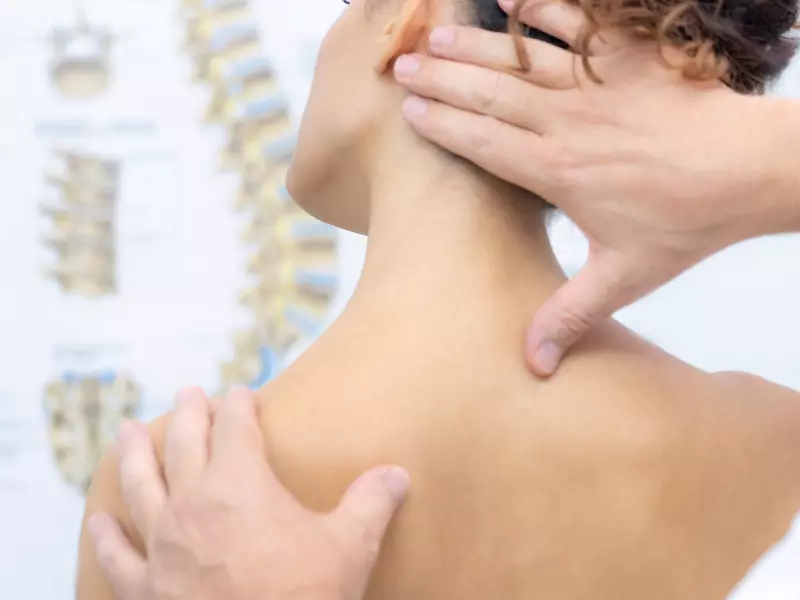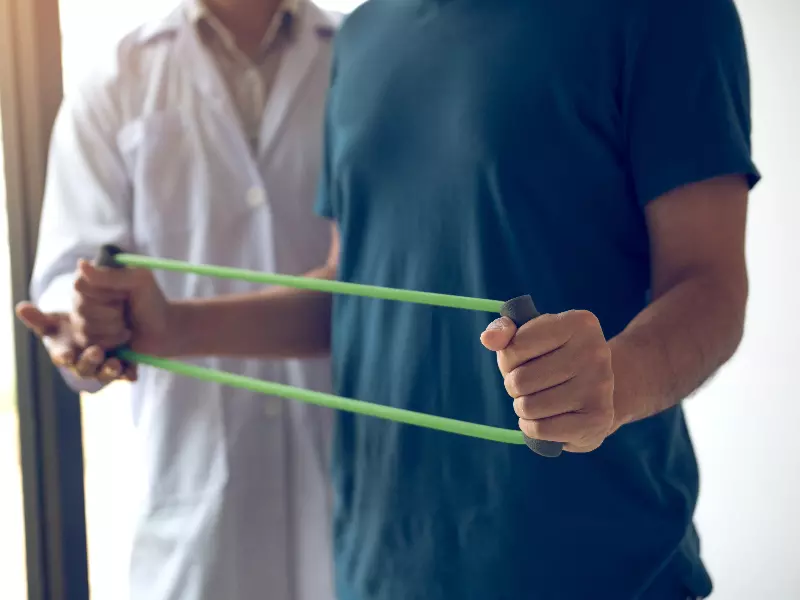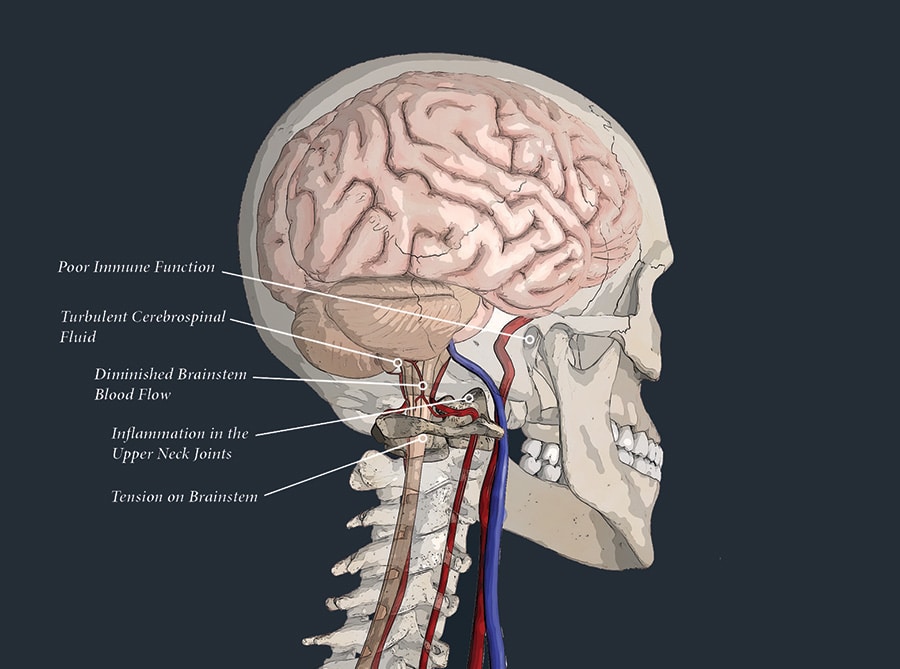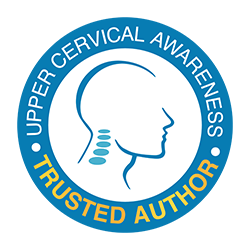
Consistent Outcomes
Upper cervical care has shown significant consistent positive outcomes for people suffering from Ménière’s disease. Dr. Michael Burcon, an upper cervical chiropractor who has published a number of research papers and lectured internationally at Ménière’s Disease conferences, has shown consistent outcomes through correcting misalignments in the upper neck. In one published study, he showed a 97% dramatic improvement of vertigo symptoms in 300 consecutive patients. He also found that all of these patients had a history of whiplash an average of 15 years before the onset of Ménière’s. It is the consistent nature of improvement through upper cervical care that has caught the attention of the medical community, shedding light on the importance of the upper neck in Ménière’s disease.
The Problems Behind the Condition
There have been many mechanisms proposed for the cause of Ménière’s disease. These causes are often symptomatically addressed one by one. However, Dr. Burcon has identified six primary issues associated with the symptoms of Ménière’s that are intimately connected to a misalignment of the craniocervical junction (the joints between the skull and the upper neck).
Complimentary Meniere’s Disease Consultation
We’d love to meet you for a 15-20 minute session with a doctor to get your story, conduct any preliminary tests, and see if we can help you. If so, great, if not, we’ll help you find the place that can.
Diminished Brainstem Blood Flow
The vertebral artery supplies blood to the brainstem, which controls functions like balance, influences coordination, and more. A misalignment of the craniocervical junction can cause spasm or compression of these vertebral arteries, leading to balance issues and contributing to vertigo.
Inflammation of the Upper Neck Joints
A whiplash injury, which is strongly associated with Ménière’s Disease, can injure the joints of the upper neck. This ofter leads to inflammation, joint adhesions, and nerve irritation that can cause symptoms including neck pain, headaches, dizziness, and hearing loss.
Turbulent Cerebrospinal Fluid
The brain and spinal cord are surrounded by a protective fluid called cerebrospinal fluid (CSF). A misalignment of the craniocervical junction can cause the CSF to become forceful and irregular, leading to irritation of nerves that control balance and eye movements.
Poor Immune Function
Nerves from the upper neck control the immune function of the inner ear. A misalignment of the craniocervical junction can send sympathetic signals to the inner ear, leaving it vulnerable to infection over time.
Comparable Results
Much of the medical literature still acknowledges that the cause of Ménière’s disease is still largely misunderstood, but treatments are still consistently proposed. Some of these treatments include:
- Low salt diets
- Surgical shunts to the inner ear
- Ventilation tubes to the middle ear
- Symptomatic management of vertigo with steroids
- Cutting the vestibular nerve
Although there have been improvements in vertigo with these treatments, they are quite invasive, often destructive, and have potential negative side effects (except for salt regulation). Upper cervical chiropractic care has shown repeatable improvements with hundreds of consecutive patients and is becoming increasingly well known.
Correcting the Root
Realigning the craniocervical junction through upper cervical techniques can open the Eustachian tube, decrease tension on cranial nerves, improve blood flow to the brainstem, reduce inflammation in the upper neck joints, improve CSF flow and restore immune function to the inner ear. Proper upper cervical care will focus on ensuring the long term stability of the craniocervical junction, which keeps these functions working properly. The combination of these improvements over time can lead to improvement in Ménière’s disease. This is why upper cervical care is one of the most essential parts of recovery from Ménière’s disease.
How Our Meniere’s Disease Care Plan Works
1. Real Answers
You have a story and we want to hear it. We want to understand you. If we feel we can help, we’ll complete a very detailed exam–unlike anything you’ve done anywhere else to get to the root of the problem.
2. Real Solutions
Once we’ve gotten to the bottom of things–the root cause–we’ll tailor-make a program of care first to stop the damage and turn things around, then continue to move your health and function in a constructive direction.
3. Real Life
At the end of the day, you want your quality of life back. Better. Stronger. Healthier. We desire to help you achieve the life that God has called you to–getting you back to your sense of purpose and joy.
How We Treat Meniere’s Disease in Mount Dora, FL
Comprehensive Consultation and Exam
The doctor and team will first do a consultation and preliminary evaluation (complimentary) to ensure you’re in the right place and that we believe we can help you. If we can, we’ll dive much deeper into your condition and how it’s affecting your life. Once we understand you clearly, we’ll thoroughly examine your spine and nervous system utilizing chiropractic, functional, and neurologic testing to find the root cause of the problem(s).

CBCT (3D Panoramic X-ray) and Motion Study X-rays
Once we’ve determined that you are a good candidate for care and can help you, we will likely need to take very specific forms of imaging to pinpoint the problem (unless you are pregnant). We want to get a good look at the curve of the spine, the alignment (or lack thereof), any degenerative changes, and contraindications to care, and ultimately find out EXACTLY what we need to do for you to get better.
Upper Cervical Chiropractic Care
Our family-oriented practice in Mount Dora provides a very specific and unique form of Chiropractic care that is precise, extremely effective, and very gentle. In fact, there is no twisting or “cracking” of your neck. Utilizing a form of care known as Blair Upper Cervical which focuses on the top two bones in the neck, where your head and neck come together, tends to yield uncommon results due to the neurological influence of this critical area of your spine. We add a supportive type of adjusting for the rest of your spine known as TRT (Torque Release Technique). TRT is a precise and effective yet gentle instrument-based technique that produces fantastic results.
When the joints of your spine are misaligned – known as a subluxation – it puts pressure on your joints and, more importantly, on your nervous system, which may cause pain and affect your global health. Your specific adjustments’ goal is to reduce the subluxations, taking pressure off your spine and nervous system so your body can self-heal the way it was created.
Custom Therapeutic Exercise Plan
Depending on your particular case, we will design a custom rehab/exercise plan (Vestibular Rehab) to help you recover quicker and attain lasting results. Your unique exercise plan aims to help restore global spinal and vestibular imbalances, address muscle weakness, increase range of motion, and improve your posture. We also aim to keep it simple—so you can do it at home in very little time. If you are a severe case, we may refer you for physical therapy aimed at a more tailored and monitored exercise rehab to complement your upper cervical chiropractic care.

Frequently Asked Questions
How do I know if I should see a chiropractor for Meniere’s Disease?
If you have unresolved dizziness, vertigo attacks, tinnitus, and fullness of the ear that hasn’t responded to other treatments or home care, getting a proper upper cervical chiropractic spinal evaluation would be prudent. Also, if you have accompanying headaches, neck pain, upper back or shoulder pain, or muscle tension, these are red flags for spinal/structural issues best addressed by a great chiropractor.
Is a massage or chiropractic better for Meniere’s?
Both are great but serve different purposes. Massage primarily focuses on the soft tissues (muscles, fascia), improving circulation and reducing stress, whereas chiropractic focuses on the neuro-structural system (the spinal joints and adjacent nerves). Because a chiropractic adjustment affects the nervous system, it will also directly affect muscle tension. Massage is a wonderful compliment to chiropractic care, but not a replacement for it.
What can I do in the meantime to relieve Meniere’s Disease symptoms?
- Reducing Stress: Stress can aggravate Meniere’s disease symptoms. Engage in relaxation techniques like deep breathing exercises, meditation, yoga, or tai chi to lower stress levels and ease symptoms.
- Follow a Low-Sodium Diet: Reducing sodium consumption may help limit fluid retention in the inner ear to help with symptoms. Aim for no more than 2,000 milligrams a day.
- Stay Hydrated: Drinking enough water may help the body maintain proper fluid levels, potentially decreasing symptoms. But excessive liquid consumption could trigger symptoms in some individuals.
- Eliminate Caffeine and Alcohol: Both substances may worsen your symptoms of vertigo. Therefore, consider cutting back or entirely forgoing these in your daily habits.
- Get Enough Sleep: Fatigue and lack of rest may contribute to increased Meniere’s disease symptoms, so ensure you set a regular sleeping pattern each night and get sufficient restful zzz’s.
- Target Triggers: Recognizing and avoiding factors that exacerbate symptoms can vary for different people but could include foods, bright lights, loud noises, or rapid head movement as potential sources.
- Use Supportive Devices: When experiencing vertigo, assistive devices like canes or walking sticks may provide stability and help avoid falls. Grab bars installed in bathrooms also ensure added safety for users.
- Implement Vestibular Rehabilitation Exercises: When recommended by healthcare providers specializing in vestibular disorders, vestibular rehabilitation exercises can help restore balance and decrease dizziness.
- Consider Dietary Supplements: Some individuals find relief from Meniere’s symptoms by taking specific dietary supplements like magnesium, Vitamin B-6, or ginger. Essential Oils such as Pure Peppermint or Citrus may also help to alleviate symptoms. It’s best to discuss with your healthcare professional before consuming.
- Locate Emotional Support: Coping with Meniere’s disease can be trying, so joining support groups or seeking therapy sessions may provide much-needed emotional assistance and coping strategies.
Please note that these suggestions may differ in effectiveness depending on the patient. It’s wise to consult a healthcare professional, such as an ear, nose, and throat specialist or audiologist, for a proper diagnosis and tailored advice for managing Meniere’s disease symptoms.
How should I sleep with Meniere’s Disease?
If you’re currently symptomatic, the best posture to sleep in is semi-recumbent (as in a recliner chair) with support under your neck. Some contoured pillows are good (some are terrible)—we recommend the Killapilla—or simply put a small, rolled-up towel under your neck. If you can lie flat in bed, put a pillow under your knees to help achieve a more neutral spinal posture. If on your side (avoid the “bad side”), it’s important to have just the right amount of pillow height so that your head is not tilted up or down, which will only irritate your neck joints and receptor nerves, possibly aggravating your symptoms.
Does a chiropractic adjustment hurt?
No, a chiropractic adjustment should not hurt. Some technique models use more force to move the vertebrae where there may be an audible “cracking or popping sound”. This is nothing to fear; it’s just gas escaping the joint. That being said, in our office, we utilize a very specialized form of care that does not involve twisting or “cracking” of your spine—it is very gentle, precise, and extremely effective at producing results. You can learn more on our website’s “Upper Cervical” page. You may also find more information at www.blairchiropractic.com
Check Out Our Location Near You
2255 Crescent St Mt Dora, FL 32757




